Grant Couch is a board member of Zen Peacemakers International and a Dharma Successor of Bernie Glassman. He has 40 years of experience in the financial services industry at a number of Wall Street firms, and is co-founder of the Conservative Caucus of Citizens Climate Lobby, a group that works for a national, bipartisan policy to address climate change. On January 31, 2018 Grant met with ZPI staff Anthony Saracino to talk about his background, work, how he got involved with Zen Peacemakers, and how the Three Tenets are at work in his life and projects. The following was revised from the interview transcript for length and clarity.
—
Anthony Saracino (A): Were you raised with a particular spiritual or religious background? What was your growing up like?
Grant Couch (G): I was raised as an Episcopalian and I was active in the church as an acolyte – what a Roman Catholic would call an altar boy. I was very active in the church until I went off to college.
A: And I understand you have a long history of practice that predates your meeting with Bernie and the Zen Peacemakers. Will you share about that?
G: After I went to college I pretty much stopped having anything to do with religion – it just didn’t do anything for me. But then when I was about 40, I was off on a camping trip with my brother and his father-in-law who is a very engaged but critical Catholic. He introduced me to Thomas Paine’s Age of Reason, a book that explores inconsistencies in the Bible.
I’d never read the Bible front-to-back before and Paine’s book motivated me to read it. When I got through the Old Testament I was disgusted – Who is this God – this Yahweh who is so vengeful?! Where’s the love?
So I went on a search to answer the old question that had come up for me before, Why am I here?. And coincidentally at that time I was going through a divorce and had just retired for the first time, so I had a lot of time on my hands, a lot of time to study all kinds of stuff. I read all the main western philosophers, several versions of the Quran, of course the Bible; I studied the Kabbalah, Vedic Verses, Bhagavad Gita, Zoroastrianism. But for some reason I put off reading about Buddhism until after I had explored everything else. And when I finally got to Buddhism I thought, “This is it!” I didn’t get an answer to “Why,” but I did feel I found a “How,” a “toolbox” on how to live, how one lives this life, how to create greater freedom, more happiness, less suffering. It really made sense. It gave me a path.
With that, my journey into Buddhism began in 1994 and shortly thereafter I started to practice meditation. And I jumped in with the fervor of the recently converted. I didn’t really have a clue about such things as emptiness, but I had this faith in the Path that resonated in my heart – so I followed it and that’s where I went.
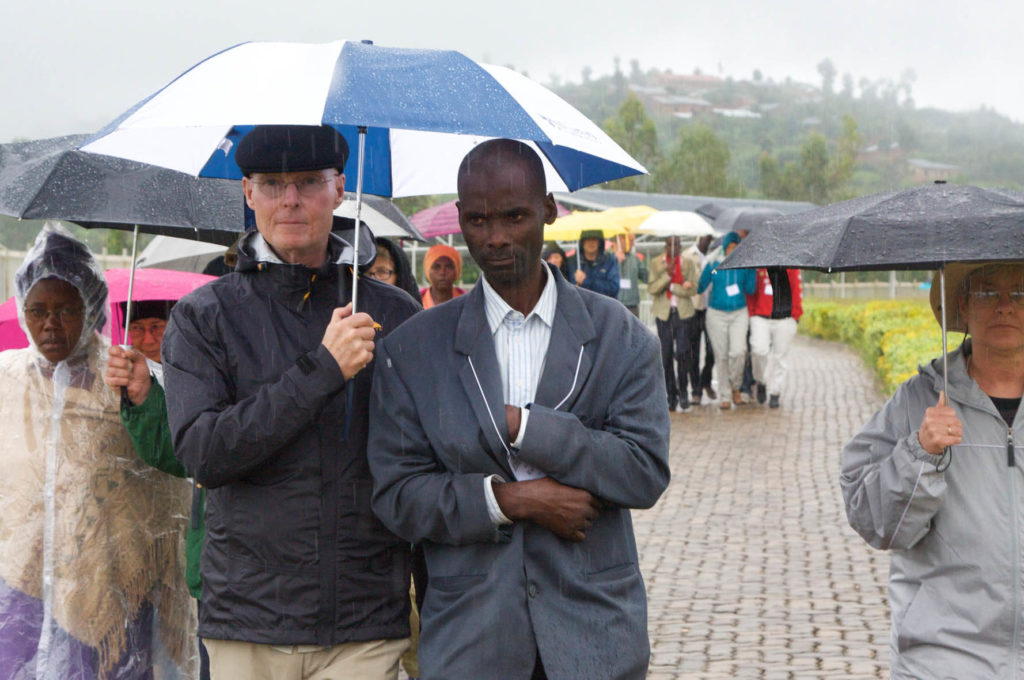
A: It’s interesting that you were turned off by Christianity because because of what you saw as inconsistency in the Bible. And then ended up in Zen, which is a tradition that confounds the intellect purposefully. It’s an interesting arc in your journey. Do you see Zen that way?
G: Of course Zen purposefully confounds our intellect, but Paine’s articulation of the Bible’s inconsistencies wasn’t my issue with Christianity. My issue was how God was presented and that Christianity is built upon the Old Testament. And you have to believe in the Holy Trinity, the Virgin Birth…It just didn’t make sense to me. Zen, one can say, doesn’t make sense either. The koans are baffling… But with Zen there’s no need to believe anything. That’s what really drew me to Buddhism, the Buddha saying “This has been helpful for me. Try it out, if it isn’t helpful for you, don’t do it.” I didn’t find that in Christianity. Of course it’s ironic that Christianity makes more sense to me now when seen through “Zen” eyes – and after being with the many loving Christian monastics I’ve been blessed to meet.
A: You mentioned the Auschwitz retreat being a powerful experience. Can you share about that?
G: I was first exposed to Auschwitz as a retreat practice opportunity in 1996. Tricycle Magazine had an article about a group of Zen people who went to Auschwitz in November. The article was accompanied by a black and white picture of maybe a dozen zen folks in their black robes, sitting on their black zafus in the snow next to the railroad tracks. I had two simultaneous thoughts: “Why would anyone want to do that?” and, “Why do I want to do that?” I was called then – in 1996, but I didn’t go until 2010.
When I did go, I ended up staying at the same hotel as Bernie, across the central Krakow square from the main participant lodging. So Bernie and I had several chances to spend quiet time together before the retreat. I had a chance to get to know Bernie – the man – before I got to meet the teacher. It was a great blessing. And the retreat was…transformative.
A: What was it about Auschwitz that was so transformative? You’d wondered, “Why would anyone want to go,” and then you went and it really moved you.
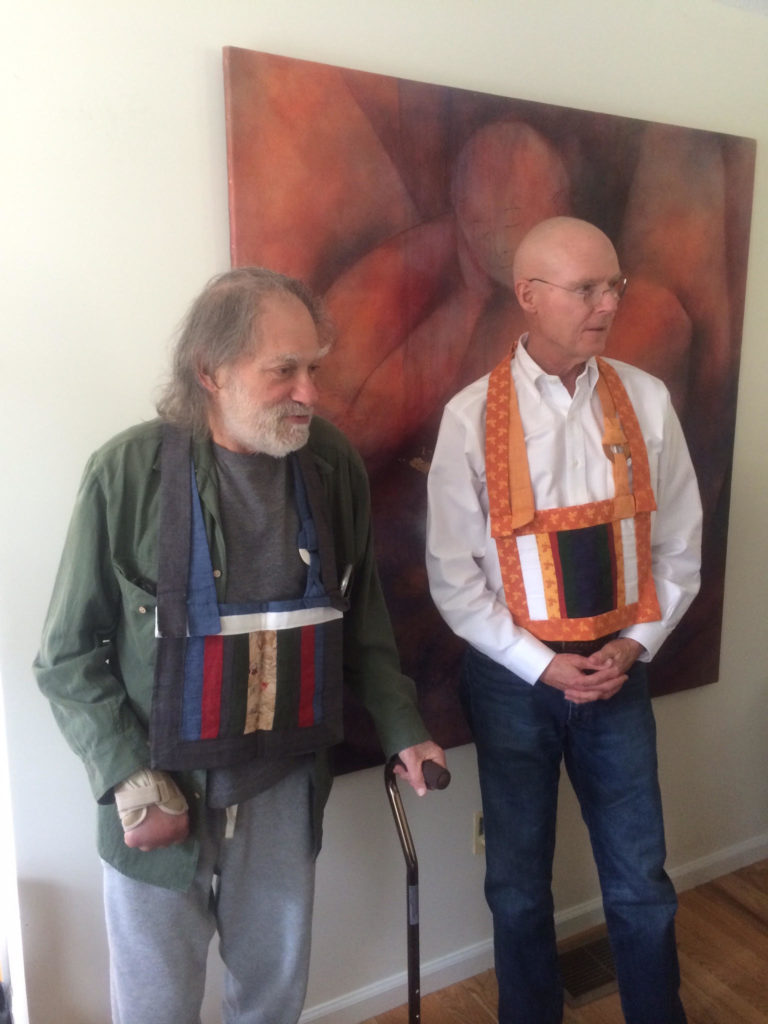
G: At the Birkenau camp of Auschwitz…There’s an arch over the train track entering the camp, with an observation room on top. It has windows all the way around. It’s a perfect place to view the entire camp, which is monstrously huge.
I went up just after a class of kids came down, I had the whole place to myself. It’s a relatively large room, maybe 20 feet by 20 feet. It was a hot day, and the window looking out into the camp was open. The windowsill was in such a way that you could lean into it– put your palms on it and lean out. I pressed my toes against the baseboards. I put my hands on the sill.
Suddenly, I realized I was standing in the boots of the commandant – exactly where he probably stood many times every day. I was just stuck there – reading the camp just like I had “read” the operations of the big company I once managed. Feeding the guards, getting the trains in and out, just…managing it. Jesus, I realized I could have been that commandant. Had I been raised the way he was, I could have walked that same horrible path.
You hear about having an open heart. I found my heart ripped, completely, wide open. It’s the place. It’s Auschwitz and it’s how Bernie let the retreat unfold. As he says, the place is the teacher. The experience of being there, in reciting the names of the dead, in council, in being there for five days. It’s truly a way to connect with the heart of all that is.
A: So it’s much different from what you found unintelligible in the Old Testament. It’s something disturbing, confounding, but somehow intelligible in the way it’s experienced?
G: It’s experiential. It’s physical, somatic, it’s all that…
A: How did your studentship with Bernie begin?
G: Before Bernie I had met many teachers, Tibetan Lamas, Vipassana teachers. I appreciated and learned from each of them, but I never felt called to ask any of them to be my teacher. Traditionally in Japan, when you’d go to the monastery you knock three times and get denied twice. So I knew I may need to ask a teacher to take me as a student three times. I asked Bernie to be my teacher the first time and he said “Nah I don’t do that anymore.”
Another time a couple months later we were on a trip and I asked again. “Nah it’s a duality thing, I don’t really do that anymore, I’m not taking any more students.” So I think okay, I know what’s going on. I wait awhile and ask a third time, but several months later I got — the same answer!
After the third rejection I dropped it, but we’d be talking about something and he’d say “You know, you asked me about being a student… Well, if I were you I’d go do this, or do that,” or “You might want to come with me here.” I don’t know if he’d say he ever took me as a student but he did end up giving me transmission. I’m honored and I’m trying to carry that tradition responsibly. And, I’m enjoying watching it evolve.
A: What about these trips you went on with Bernie?
G: We went to Palestine. Rwanda, Sri Lanka, Auschwitz…With Native Americans, on the street… I remember once I came home from Rwanda and then immediately got on a plane to spend four days with him in the Bowery on a street retreat.
A: Ah, what it was like being on the streets as someone coming from a Wall Street career?
G: One night I ended up sleeping in the alley next to the Federal Reserve building… It was a trip. It was Easter weekend when we were there and it was nasty, rainy, windy, cold. But Easter morning it was crystal clear and the sun was out, and I remember walking around the empty canyons of Wall Street in my grungy clothes looking up at the buildings where I used to work in my fancy-ass suit, all busy and important, rushing around. Just, seeing it with different eyes…It was beautiful to be alive!
A: In 2016 Bernie recognized you as a Sensei. As a lay Sensei you’re not a priest, and you don’t maintain a zendo as some lay teachers do. The other day Bernie described you as a great example of someone embodying the dharma in the everyday world. How do you see your role as a Sensei, how do you bring your teaching into the world?
G: It’s evolving for me, as my life has evolved. I go with the flow and use the Three Tenets. Lately I’ve been sitting with a Thich Nhat Hanh sangha here in Key West and they have no resident teacher. I’m here through March and after giving a teaching on the Three Tenets they asked me to give a talk each week as long as I’m in town. And I’ll be giving the Sunday talk at a UU church next month. So I’m sort of an itinerant teacher at this time. I try to embody the teaching every moment and there are times in the non-zendo world where the dharma can be explained in non-dharmic language that is helpful to people.
On Wall Street I had an office that overlooked the trading floor where we’d do 15-20 billion dollars a day in volume. It was great to make the money I was making, and to have the warrior joys of fighting a battle every day – with no one getting killed. I had a big picture of an old, decayed, wooden buddha from Rhode Island School of Design that overlooked the trading floor through my window, so people knew I was into Buddhism.
The best part of the job was when people would come into my office with a challenging work situation and I would walk them through how they could probably handle it differently. It wasn’t often, but one of the best things was when that person would come back a couple weeks or months later and say “You know, I tried what you said at home…It really made a difference with my family.” That was powerful. That’s where the teaching shows up outside the zendo. When it can, it does…but it’s not a teaching like at a zendo.
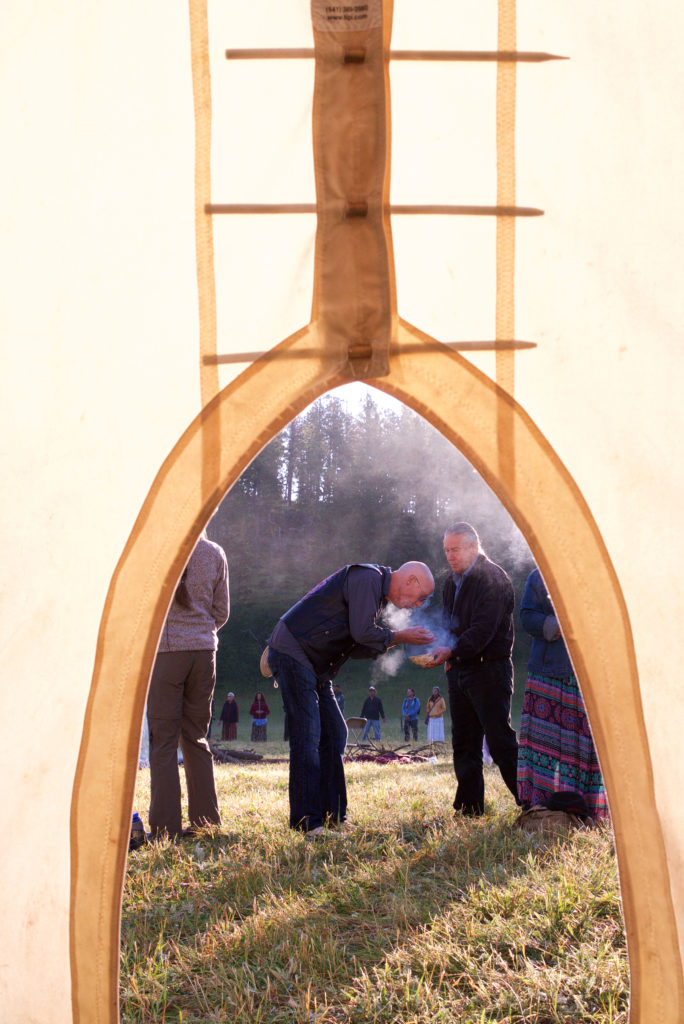
Grant at the 2015 Zen Peacemakers Native American Bearing Witness Retreat, Black Hills, Turtle Island (USA)
A: As a dharma practitioner in the financial sector during the 2008 financial recession– what was your experience of that?
G: I was the president and chief operating officer for Countrywide’s Capital Markets subsidiary, and Countrywide was one of the mortgage companies involved in the financial meltdown that caused the recession. We were part of a larger system where liquidity was big, everyone was chasing higher yields and the rating agencies were competing for business so they could keep rating bonds. The regulators were afraid of being too tight – thus motivating the financial center of the universe to move from NYC to London or Frankfurt. They didn’t want to lose jobs or prestige. It was a great case of interconnectedness!
I could have quit. Would’ve done no good. Someone else would’ve done the job. Whether this is rationalization, justification, explanation… I still reflect on my role in this, it’s a question that comes up regularly. There was a side benefit: my continued involvement gave me the ability to provide financial support to many entities – mostly dharma related. And I had a wonderful chance to experience the great joy of generosity.
A: How do the Three Tenets, and being a teacher, play out in your work with conservative congress people on climate change issues?
G: I started a group called the Conservative Caucus within a larger group called the Citizens Climate Lobby which is advocating for a revenue-neutral price on carbon at a national level. It’s a grassroots organization that gets citizens involved with congress. When I joined four and a half years ago we were not yet 5,000 members. We’re now approaching 100,000 members.
A big challenge for the CCL is that the preponderance of members are progressive, liberal types. But we’re trying to get something done that’s nonpartisan, something that should really resonate with conservatives.
That’s why I started the caucus. We focus on the Right side of the aisle, but the challenge is no greater there, honestly, than it is to work with the Left [Right and Left refer to the Republican-conservative and Democratic-liberal parties in US politics].
It’s amazing to me, both sides are so stuck in their bubble that nothing the other side says is okay. Whether I’m talking with a progressive who blindly hates Republicans or to a Republican who is blind to the risks of climate, the Three Tenets are an extraordinarily powerful tool. I mean, it’s not even a tool, it’s the only way to be. To just be there without “knowing” and bear witness and not prejudge how you’re gonna talk to a person. To listen. And if there’s an action that comes out of that– as often as not, the action is to continue to bear witness. Extraordinarily powerful.
—
At the time of this interview Grant was living in Key West, Florida. Below are two interviews he gave on local radio stations about his climate work:
Interview given on US1 Radio
Interview given on Island 106.9 Radio

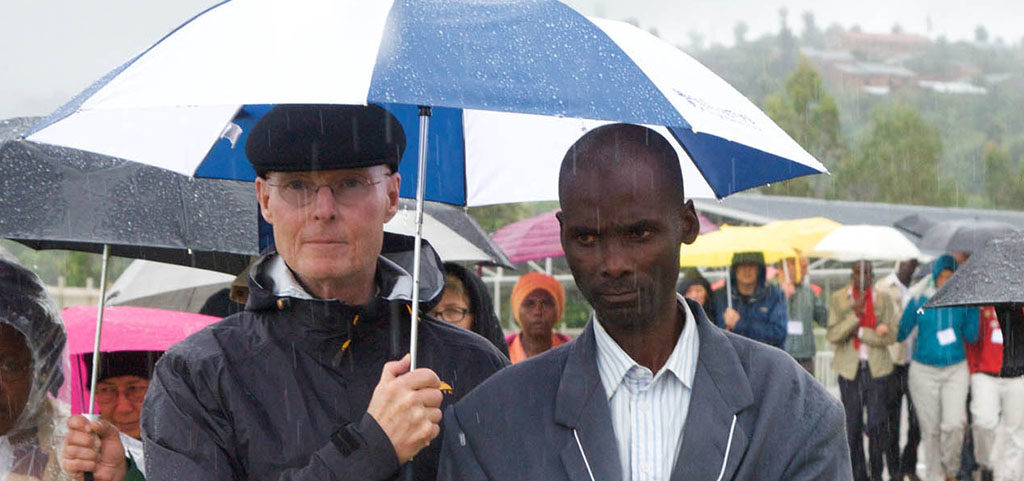
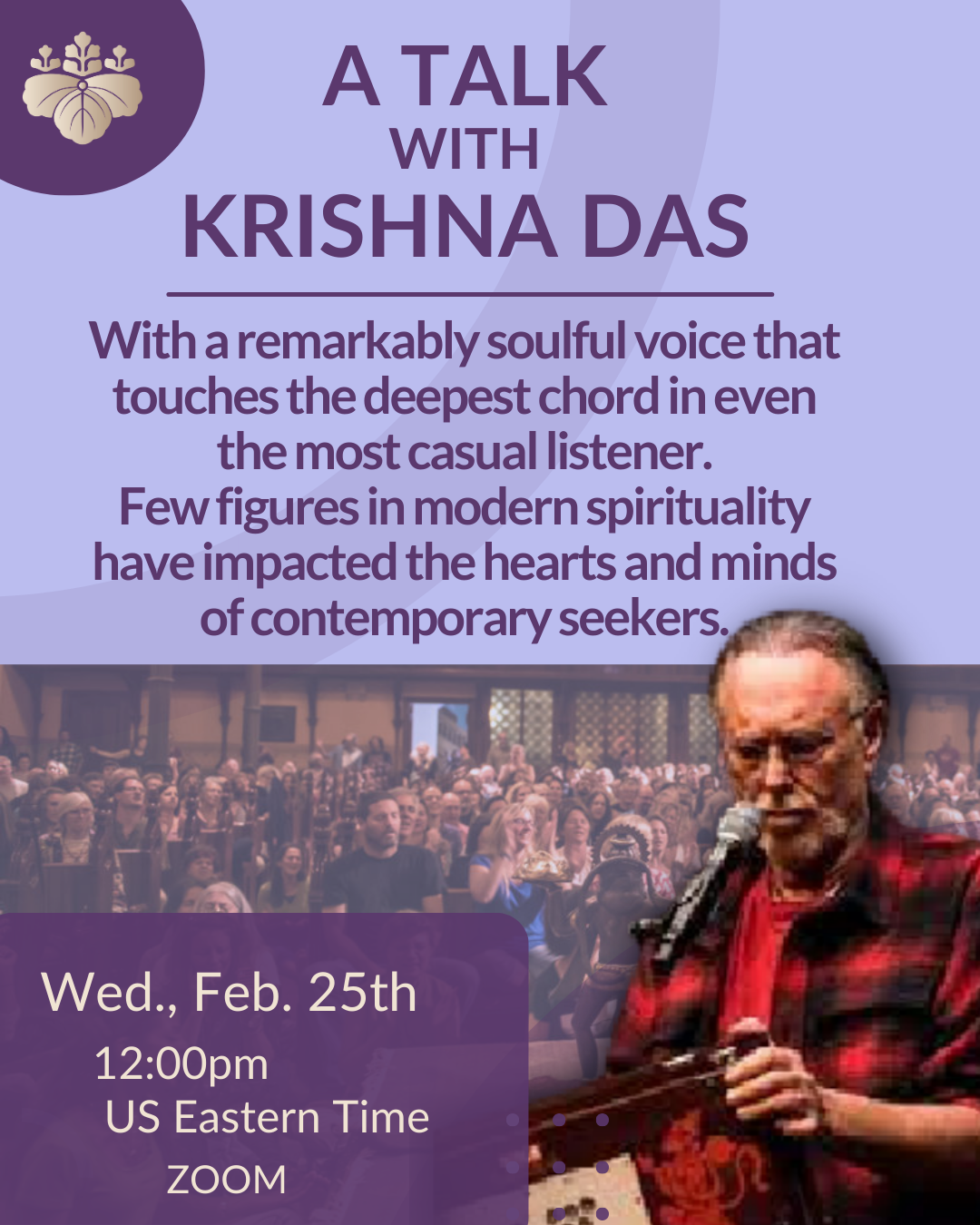
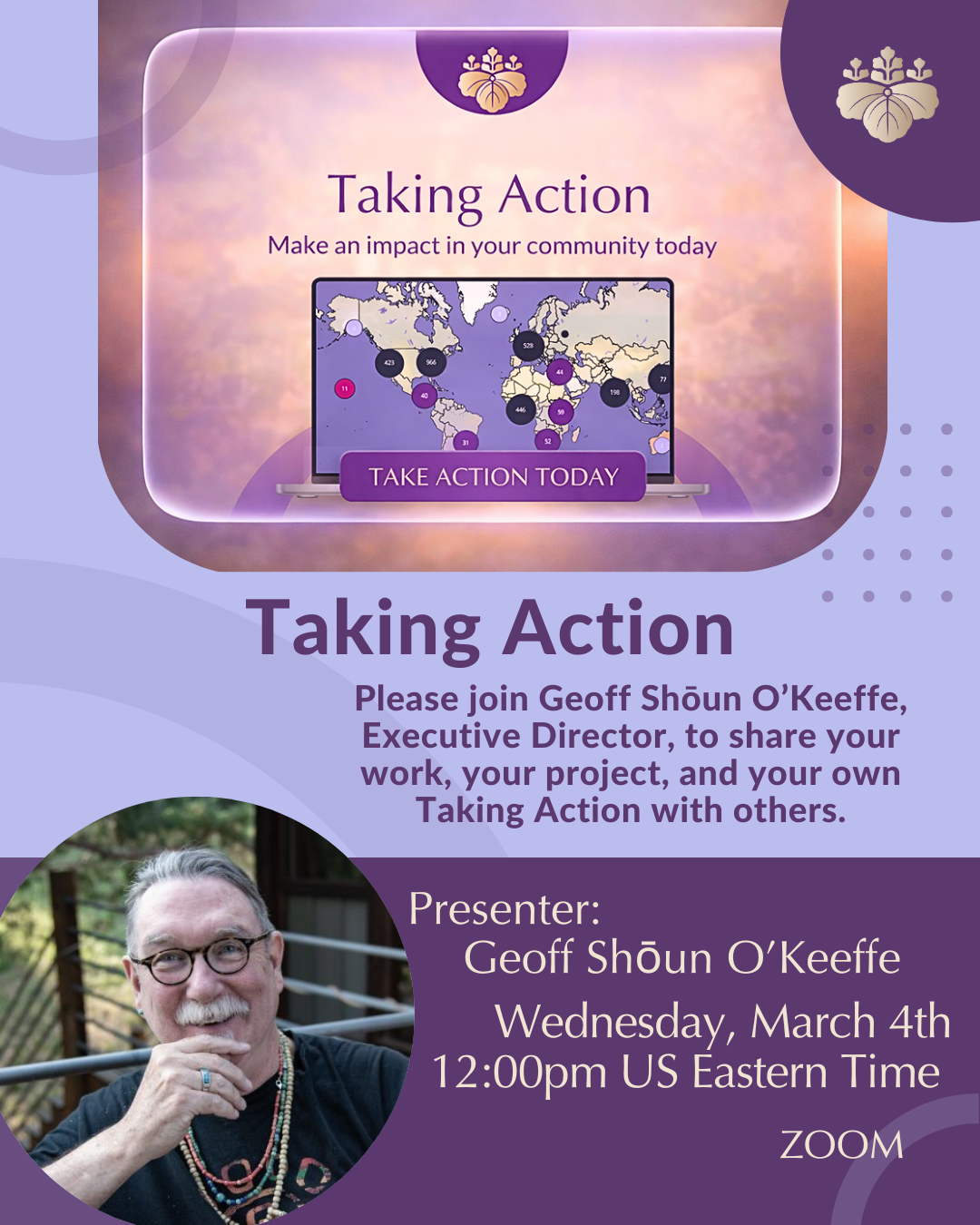
One Response
Ugh, rapacious capitalism. I can’t square that circle. Saving all sentient beings?